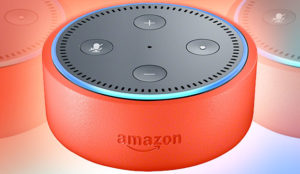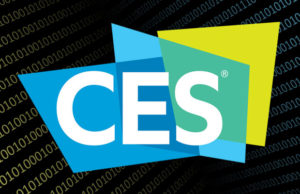
CEO Brian Krzanich laid out the road map for Intel’s future in his first Consumer Electronics Show keynote as CEO.
Krzanich, who took over the top job last May, focused on wearable technology — including some products designed internally — as well as dual operating system tech and Intel’s McAfee security software.
Personal Assistant
Among the products Krzanich displayed was a Bluetooth headset, codenamed “Jarvis,” that can integrate with a smartphone personal assistant function, such as Apple’s Siri, without requiring the user to touch anything. (You first need to press a button using Apple’s earpods to activate Siri.) Intel is working on its own personal assistant system.
Krzanich also demonstrated a set of Intel smart earbuds that also measure users’ biometrics, including heart rate. The earbuds are powered through smartphones’ headphone jacks rather than drawing from their own batteries.
Wealth of Wearables
Additionally, Intel debuted a smart charging bowl that starts charging your devices when you drop them inside.
Finally, in the wearable section of the keynote, Krzanich debuted a smartwatch with no tethering requirements and a smart geo-fencing feature — essentially, a way (for parents, for instance) to monitor people who are wearing the watch in a specific area. If a person should step outside the geo-fenced area or be in the wrong place at the wrong time, the person monitoring that activity would receive an alert.
Intel is partnering with fashion companies to create wearable devices, but Krzanich did not reveal whether the company would bring the products it designed to the market itself.
SD-Sized Computer
Krzanich took the opportunity to display Intel Edison, a computer housed in a case the size of an SD memory card. It can be attached to clothing and other products to make just about anything into a smart device.
To urge developers and designers to create wearable tech using Intel’s technology, the company is offering US$1.3 million in prizes.
Krzanich also highlighted some devices capable of running dual operating systems: Microsoft Windows and Google Android. With a dual OS processor, users can switch between the operating systems at the touch of a button.
McAfee No More
Intel is dropping the “McAfee” name from its security products. The software is now called “Intel Security.” With an eye on all the new wearable technology that can connect to smartphones, Intel is making some of its mobile security offerings available for free.
Krzanich also highlighted a 3D scanning system that will be available in tablets this year. The multiple lenses the system uses on the back of the device can be used to scan objects for 3D printing.
Future Focus
Intel’s chief previously told investors the company would focus more strongly on mobile devices, while expanding its foundry business to build processors for other chip makers, and moving into additional new markets.
Krzanich is certainly expanding Intel’s empire far beyond its chip-making roots.
“Intel is branching out from its traditional role of supplying the PC industry with silicon and reaching into new areas,” Roger L. Kay, principal analyst at Endpoint Technologies Associates, told TechNewsWorld.
‘Unusual’ Partnerships
“Wearables are a very hot topic at CES 2014, and the sector fits well in Intel’s Internet of Things strategy,” Charles King, principal analyst at Pund-IT, told TechNewsWorld.
“It also offered the company an opportunity to spotlight three new and unusual development/channel partnerships with high-end fashion firms,” he noted.
“These advances aside, Intel still faces some serious challenges — especially in the mobile space, where ARM-based processors dominate the market,” King continued.
“While the company is working hard to overcome these issues, it still has a long way to go,” he said, “but from the look of things at CES 2014, Intel has both the assets and the leadership in place to continue advancing.”





















































